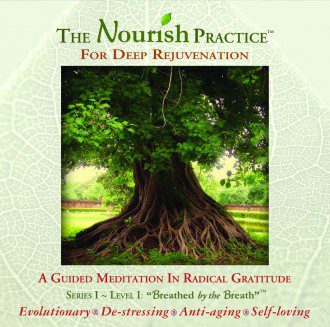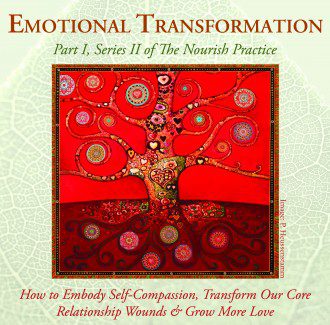Contributing Writer for Wake Up World
For many, intimate relationship is not easy, at all. For all the excitement of attraction and attachment, we also get stirred up, hurt, neurotic, frustrated, stressed, and challenged to the max. Whether it’s longing, disagreements, misunderstandings, or simply our own unhealed emotions surfacing, it’s helpful to have some tools to navigate the tricky and tempestuous turns of deeply loving and being loved by another human being.
I hope these suggestions and invitations help you; please add any thoughts you can offer in the ‘comments’ section below.
When the Shit Hits the Fan…
1) Practice Vulnerability:
Defensiveness creates blocks against communication and honesty. What we hold in secret hinders our path of loving. Being vulnerable to hear what is being communicated allows process and clearing to happen in communication, which frees up our hearts once again for intimacy and the experience of feel-good connection.
We all get hurt in love, sometime. Learning to accept the inevitable pain that comes with loving someone else, and being loved by them, helps us accept reality and one another, as well as the good that comes with the bad. Defending against difficult and painful truths makes everything worse. Vulnerably and courageously opening to one another and our respective aches makes it better.
2) Ask Questions:
When someone asks you a question, especially one that penetrates and triggers you, take a deep breath and assume it’s as a request for information. If you react or get defensive, look into why you became defensive. Are you afraid to feel or see something true, to reveal something to yourself or to them? Questioning is how we learn about one another and discover the truth. Don’t assume you know what’s true about someone else. Ask questions; try to hear the truth and be careful about defensively not believing what you hear. Doing so creates conflict. Defending against questioning promotes more assumptions and misunderstandings. When wondering about, or assuming, something your partner has done or does, ask question/s first to get the facts straight. (For more on this topic, please read my article The Art of Listening: Inquiry vs. Argument.)
3) Triggers:
When you love someone deeply, and you are deeply touched by them, remember this can be unconsciously perceived as scary to your ego that wants to protect itself against the ways you have been previously hurt by intimacy. Our current love relationships mirror our past love relationships. We get triggered and scared in proportion to the depth of emotional intimacy we experience.
Becoming aware of how the present connects to the past can help us gradually to perceive the present as influenced by, but ultimately different than, the past. In this gap is the possibility for growth and change, the choice to learn new patters and let love in more safely, bit by bit. This conscious awareness helps us not react to the present as the past. Admitting our triggers and reactions makes this more possible.
4) Slow Down:
When you feel overloaded and overwhelmed, slow down. Get sleep, calm down and slow down. Be gentle with yourself and others. What can seem insurmountable one day can become minimal the next morning, or next week.
Subjective reality is morphable, and part of it has to do with digesting, processing, and coming to greater understanding in right timing. Perspectives change as we uncover parts of ourselves and discover resources we thought we did not have. Grace and intuition have ways of finding solutions when we can’t in the moment; over time, everything changes and obstacles today can be doorways tomorrow, next week, or next year. Especially, don’t make big decisions in the heat of the stressed moments; give big decisions time, and the test of time.
5) Personal Wounds:
Recognizing our personal wounds helps us not project and get too nutso on our partner. Cultivate the discipline to deal with your own stuff; this is sovereignty and will reward your own soul and your relationship with more dignity, respect, vulnerability, intimacy, and peace. Not doing this and getting into defensive and blaming projections and displaced emotional burdens creates a ball of wax that can be tougher and tougher to unwind.
Journal, see a therapist, talk to a good friend, spend some time in nature — walking, feeling, and pausing — to work through your issues in order to replenish your perspective and balance. Working on ourselves to manage and heal our core wounds helps us become less defensive because we get to know our triggers and re-context the emotional memories and their emotional cargo that cause defensiveness and shutting down.
6) Take Space:
Getting overwhelmed with runaway mind and emotions is common in matters of the heart. Rather than engage when we feel our worst, taking space to chill out and let ourselves settle is often a good idea. Not only do we get perspective on our momentary states of mind and heart, but we can usually communicate them better when we feel more centered.
Of course, this is not always possible or even appropriate, but when we can, it can be golden. Sometimes we need to let it out in messy fashion. There is messiness that heals and messy engaging that creates more havoc. Either way, holding all our messy engagements (to the degree we can handle) in a greater circle of imperfect human loving is good heart-work. Restraint for right timing is a discipline that bears fruit, however difficult it is to hold back what we want to share in the moment. What can seem true today can seem untrue tomorrow. Over time we get to know what works for us, which takes patience and courage.
7) Friends:
Support from friends and family is crucial when love challenges us. Feeling alone, helpless, broken, and overwhelmed happens to all of us in love. Those that know us well and can hold caring, comforting, and sacred space for us can help us work through and energetically support us in all we have to endure. They can be there in our grief, our joy, our despair, and in our confusion.
When we show up with our broken hearts we give one another a gift. To hold space and support a friend going through a tough time is to make all the tough times you went through more valuable and worthwhile, especially if they have deepened you.
8) Self-love and Alone Time:
We might love others more than we love ourselves. This might be a carry-over from caretaking one or both of our caregivers in childhood. Relationships are not sustainable unless we can comprehensively care for our partner (and family) as well as ourselves. While we all need to be nursed from time to time and vulnerably accept care, we also need self-care.
Time away from partner and family, even for a short time, is crucial. While they might miss you, if you are missing yourself too much, some balance is called for. If we are deficient in self-care, we can begin gently, without persistent self-condemnation — such is the beginning and endurance of self-love. We also can ask our partners to support us caring for ourselves, and encourage them to care for themselves, even if it means they take space from us. No doubt, this requires self-confidence and a big heart.
The ability to be alone, to cultivate and mine our own resources, is crucial for a sustainable partnership. If we can’t be alone, we can’t truly be together, and vice versa. Our aloneness allows us to embody the difficulties and challenges that come up in relating. Just as we need the support of others, we also need our own support. If we are not in touch with the parts of us that need to be touched and held in our own arms, then we can’t be as deeply there to hold and to appropriately release others. Time alone helps us feel our insides and the scary parts that need our love, so we can hold and be held more fully by others.
9) Exercise and Stillness:
Stagnation does no good for the mind and body. This doesn’t mean that every time we hit a difficult feeling we should move around. In fact, quite the opposite is often true. We need some measure of stillness in order to feel, understand, and be with our difficulties so they can naturally shift. This happens primarily through self-acceptance.
Mere physical movement will not achieve what being still can achieve. And, when it’s time to move the body, being still won’t shift what moving can. So, pay attention to your movement/stillness gauge. When the mind is spinning out and rehashing the same old story, and your emotions are spiraling out of control, notice this and consider moving or changing the scenery. And if you’re busy and big feelings come up, consider slowing down, stopping, and sinking in to be with them — I created the Nourish Practice as a container for this.
Yin-stillness and Yang-movement make the world go round.
10) Pray:
Whatever you believe about prayer, my experience is that prayer activates parts of me that seems only to be activated by the act of praying. Praying helps me set intentions, set my radar on more than my self, receive guidance from non-linear sources, and to embody a sense of surrender and openness to truth. I pray regularly, not so much formally, but as gestures for guidance and soothing. Pray, not necessarily so that something magically answers your call, but so that your own sense of calling can be assisted by ordinary magic.
11) Breathe Deeply:
Breathe deeply and often. Sometimes our breath is all we have to carry us from one moment to the next. In anxiety, in fear, in overwhelm, in overwhelming anger or despair, taking one deep breath, and then another, gives us hope and confidence to reach the next moment. Deep breaths loosen our chests, and deep belly-breathing moves the diaphragm downward to release tension and emotion in our hearts, middle, and lower belly. Sometimes, remembering to breathe deeply is all I have, and saves me… going from one tense moment to the next. Give thanks for breathing.
Bonus Tip:
Distract yourself. There is such a thing as healthy denial, or giving ourselves a break. Try to have some fun. Focusing on our upsets all the time gets convoluted, stressful, and too confusing. During heartbreak, we often can’t help it. Focusing on other things helps relax and give perspective. Meditation, service, busy work, social time, throwing a Frisbee, playing with kids, watching a movie, being productive on a project, and any other healthy forms of distraction from our griefs give respite and paradoxically help resolve our consternation. Of course, if we get hooked on healthy distraction, it can become unhealthy denial! Find your balance.
The Nourish Practice
Jack Adam Weber’s “The Nourish Practice” is an easy, guided meditation-Qi Gong practice in radical gratitude and self-love. It is an Earth-based, body-centered practice — at once physiological and mythological — that is deeply relaxing and replenishing, especially for modern-day burn-out syndrome, and requires little physical effort. “The Nourish Practice” resets your nervous system and fosters a rich inner life.
You can purchase The Nourish Practice as a CD or Digital Download here.
PLUS: The first installment in Jack Adam Weber’s new “Emotional Transformation” series, entitled “Healing from Heartbreak”, is available now!
Previous articles by Jack Adam Weber:
- The Modern Shaman: Fierce Love at the Frontier of Madness
- When We Love an Addict – Courage and the Limits of Compassion
- Arrogance in Relationships: How to Deal With and Heal It
- 11 Reasons Why Hippies (Not Psychos) Should Rule the World
- The Monsanto Years: Singer Neil Young Rips Into GMOs, Big Biz and Conformity
- ReVOLUTION: When Enough is Enough
- Sex – Truth and Dare, Pleasure and Purpose
- Relationships: The Costs of Staying When We Should Leave
- Yin Yang — Ancient Wisdom for Personal and Planetary Transformation
- Heartbreak – Loving Ourselves Through Difficult Times
- Sacred Space – What Is It and Why Do We Need It?
About the author:
 Jack Adam Weber, L.Ac. is a Chinese medicine physician, author, celebrated poet, organic farmer, and activist for body-centered spirituality. He is also the creator of The Nourish Practice, an Earth-based rejuvenation meditation. Weber is available by phone for medical consultations and life-coaching.
Jack Adam Weber, L.Ac. is a Chinese medicine physician, author, celebrated poet, organic farmer, and activist for body-centered spirituality. He is also the creator of The Nourish Practice, an Earth-based rejuvenation meditation. Weber is available by phone for medical consultations and life-coaching.
You can connect with Jack at:
- Website: JackAdamWeber.com
- Facebook: Facebook.com/JackAdamWeber
- Twitter: Twitter.com/JackAdamWeber
- Email: [email protected]

Join celebrated Qigong teacher Marisa Cranfill for a free online video event. In this transformative session, you’ll learn how to activate your heart’s energy and cultivate the shen—your spirit’s connection to love and peace. Marisa will guide you in using Qigong to regulate your nervous system, enhance emotional balance, and promote self-love.
During the event, you’ll learn how to:
- Release emotional blockages through the Sea of Tranquility practice
- Open fire meridians to activate heart energy
- Cultivate calm, joy, and resilience by aligning your heart with universal love
Marisa will guide you through gentle breathwork and self-massage techniques to harmonize your mind, body, and spirit, leaving you with a deep sense of inner peace and joy.
RSVP now to join this free Qigong event and unlock your heart’s healing potential!
If you’ve found value in our articles, we invite you to support the release of our brand-new book, “Gratitude Practices for Kids: A Practical Guide for Adults to Instill a Spirit of Appreciation and Positivity in the Next Generation.“
“Gratitude Practices for Kids” brings together over 25 innovative and accessible practices designed to enhance gratitude in everyday life. This comprehensive guide is backed by 17 scientific studies, ensuring each concept is grounded in research, underscoring our commitment to nurturing growth, emotional intelligence, and positive interactions between adults and children.
We encourage you to opt for the paperback version to celebrate this new release. Dive into its fresh pages away from digital distractions, allowing you to immerse yourself in the transformative practices it offers.
Over recent years, Wake Up World has faced significant online censorship, which has impacted our financial ability to operate. Moving into book publishing represents a strategic step to secure the ongoing funds needed to continue our mission. By purchasing Gratitude for Kids, you help us keep our content free and accessible to everyone, avoiding needing a paywall. With over 8,500 articles published in the last 13 years, we remain dedicated to keeping our valuable content open to all.













